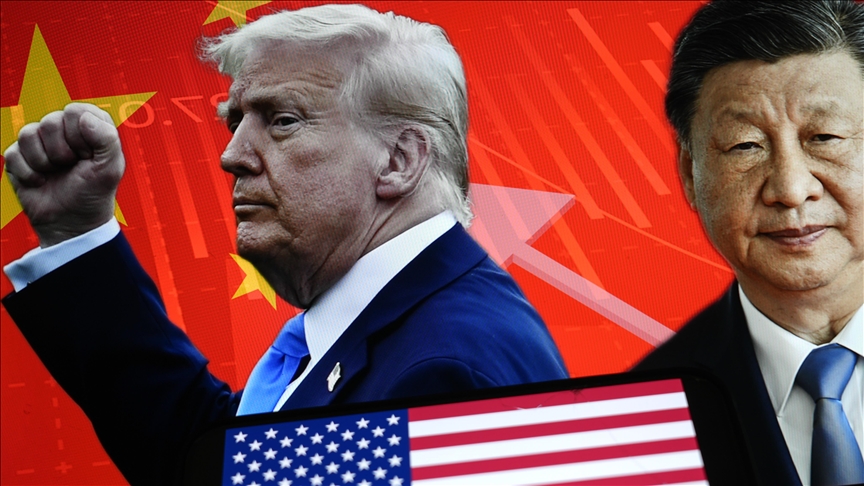Rare earth elements new front in US-China trade wars
Beijing’s export restriction may affect global supplies of high-tech products as China wields rare earth metal production dominance to negotiate, expert says

ISTANBUL
Rare earth elements have become a new front in the trade wars between the US and China after Beijing restricted the export of some, fueling concerns and questions about how the global supply of high-tech products will be affected in the aftermath.
US President Donald Trump’s reciprocal tariffs followed China’s announcement of restrictions on seven categories of medium and heavy rare metals. Chinese suppliers will be able to export the products only with the government’s permission, but Chinese customs will be able to seize shipments suspected of containing them.
The elements are used in a wide range of products from weapons systems to high-performance engines, nuclear reactors to electronic and optical equipment, spacecraft, medical imaging machines, batteries, fuel cells, semiconductors, superconductors, and more.
China has a large share in the production of 17 rare earth metals and it is again demonstrating its intent to leverage its position as a dominant supplier into having the upper hand in the economy.
Trump’s 34% reciprocal tariffs on China led to the developments. China’s rare earth elements are used in the defense, electronics, renewable energy, smartphone and electric vehicle (EV) sectors.
The move is expected to jeopardize the global chip manufacturing supply. Beijing said it would not back down to Trump’s imposition of a 50% additional tariffs on China and it will take countermeasures against Washington.
China’s ‘trump card’
Asian markets specialist Mete Ozbalaban told Anadolu that the rare earth metals China produces are the country’s “important trump card.”
“China seems to want to use rare earth metals as a trump card in negotiations -- it doesn’t want to stop exports completely, it just imposes restrictions,” he said.
Ozbalaban stated that the US and Japan are seeking alternative solutions for rare metals, as China’s share in their production exceeds 50% in most rare metals.
“China started to wield this situation as a weapon against the US, Japan, and the EU,” he noted. “After the US expanded controls and restrictions on the chip industry against China on Dec. 2, China stopped germanium and gallium exports to the US the next day.”
“A restriction on gallium exports was placed already in August 2023 and China’s antimony exports were hit by restrictions in September, which led to a 90% decline in October, and no exports to any country except for Russia and India,” he said.
Ozbalaban emphasized that Trump’s tariffs on China may prompt Beijing to use rare earth metals more effectively and even completely ban the exports of these elements, which may include countries other than the US.
“The US started to reduce its gallium, germanium, and graphite dependence on China in 2024, as when we look at the figures of 2023, China’s share in gallium imports was 18%, germanium 38%, and graphite 40%, but the next year in 2024, gallium imports from China declined to 9%, germanium to 32%, and graphite to 38%,” he added.








